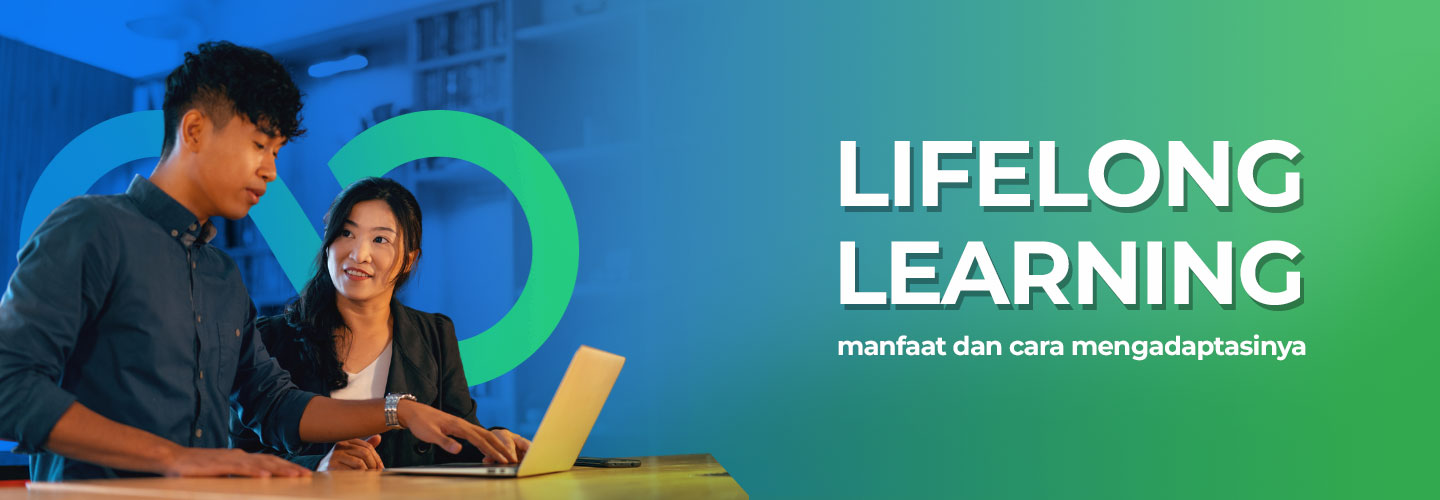ESG Center
Focus on driving sustainable business, practices through expert consulting, training, advising, assistance, and innovative solutions in Environment, Social, and Governance (ESG).

The learning process is actually not limited to specific examples of certain activities. Likewise, self-development can be done as a lifelong lesson (lifelong learning). Everyone can do it for certain personal achievements.
Not only limited to training or informal processes outside the organization, lifelong learning can also take the form of formal education. Lifelong learning is more accurately described as an educational process that begins with one's own desire for self-development.
Lifelong learning can help someone to achieve personal satisfaction. It is not surprising that the lifelong learning process can also arise from personal passions or professional ambitions in the workplace.
Carrying out lifelong learning as a life journey can provide many long-term benefits, including the following.
Some people often get stuck in the habit of doing something just because they have to. Examples include going to work or cleaning the house.
Finding out your inspiration will be a reminder that you can actually do the things in life that you want. This can be a long-term motivation to increase life satisfaction.
Reviving a passion will reduce boredom. This also makes life more interesting and even opens up opportunities in the future. You never know where your interests will lead you if you just focus on that.
Being busy learning new skills or acquiring new knowledge will allow you to build other valuable skills. This will be useful to help someone in their personal and professional life.
When utilizing other skills to learn something new like sewing, you need to learn to problem solve. Another example, learning to draw involves developing creativity over time.
Skills development can include interpersonal skills, creativity, problem solving, critical thinking, leadership, reflection, adaptability and more.
People who are more knowledgeable or skilled in a skill will be more confident both personally and professionally. Self-confidence comes from the satisfaction of accomplishment after devoting time and effort to learning and developing.
Lifelong learning is useful for providing motivation for someone. This can increase satisfaction in understanding life. To adapt lifelong learning, you can do the following things.
Lifelong learning is something that is related to oneself and has nothing to do with other people. You can reflect on your future dreams according to your preferred interests.
You can set a career as a personal goal and how to participate in it can be done by studying independently. Apart from that, some people may also have an interest in studying history and can explore it as a passion.
After knowing the passion that can motivate you, try to look at the goals you want to achieve. If you have a passion for studying European history, does this make you want to get a degree or is it just a hobby?
In order to achieve your personal goals, you need to find out how to get started. You can read various information about the passion you want to pursue and formulate ways to learn it.
To deepen your knowledge, you can find information from books in the library, listen to podcasts, or visit museums. If you want to explore it more seriously, you might consider joining a bootcamp or related research.
Lifelong learning can be done while still working, but you have to adjust your schedule and set goals. It is important to be able to make time to achieve these goals. The goal is so that you don't give up or stop halfway.
Making plans and taking study initiatives may not be something new for you. It could be that you are just continuing a passion that has been put on hold because of your new busy life. For this reason, new adjustments are needed that make it more realistic in the long term.
You must be able to commit to the decisions that have been made. Just making a plan is not enough to motivate yourself to make it happen. You must be committed to achieving your goals and not look for reasons to abandon them.
Adapting lifelong learning is one thing that can continue to motivate you in personal and professional matters. Lifelong learning allows a person to still have goals that make him feel happy when making an achievement or development in the long term.
INSIGHT AND KNOWLEDGE
RECOMMENDATION ARTICLES